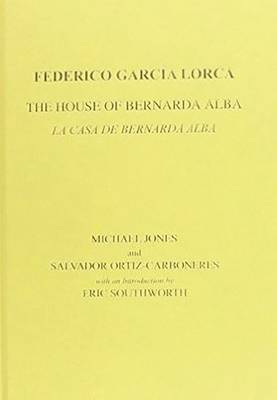
- Afhalen na 1 uur in een winkel met voorraad
- Gratis thuislevering in België vanaf € 30
- Ruim aanbod met 7 miljoen producten
- Afhalen na 1 uur in een winkel met voorraad
- Gratis thuislevering in België vanaf € 30
- Ruim aanbod met 7 miljoen producten
Zoeken
Lorca: The House of Bernarda Alba: A Drama of Women in the Villages of Spain
Salvador Ortiz-Carboneres, Eric Southworth
€ 271,45
+ 542 punten
Uitvoering
Omschrijving
La casa de Bernarda Alba (The House of Bernarda Alba) was one of the last plays to be written by Lorca, shortly before he was executed by the Franco regime at the age of 38, in 1936. It was not performed until 1945 several years after his death. Along with Blood Wedding and Yerma it forms Lorca's Rural Trilogy. The play is based around five daughters who live with their fearsome and tyrannical mother. The daughters have been kept sheltered from the opposite sex, but the arrival of a suitor after their father's death catapults the family into a downward spiral of sexual jealousy and death. The play explores themes of sexual oppression, passion, and conformity, and examines women's lives in Spain at the end of the 19th and beginning of the 20th century. Bernarda's cruel tyranny over her daughters foreshadows the stifling nature of Franco's fascist regime, which was to arrive just a few weeks after Lorca finished writing his play. The introduction by Eric Southworth addresses the main issues of the play and the issues involved in translating it.
Specificaties
Betrokkenen
- Auteur(s):
- Uitgeverij:
Inhoud
- Aantal bladzijden:
- 208
- Taal:
- Spaans
- Reeks:
Eigenschappen
- Productcode (EAN):
- 9780856687945
- Verschijningsdatum:
- 02/04/2009
- Uitvoering:
- Hardcover
- Formaat:
- Genaaid
- Afmetingen:
- 148 mm x 210 mm
- Gewicht:
- 303 g

Alleen bij Standaard Boekhandel
+ 542 punten op je klantenkaart van Standaard Boekhandel
Beoordelingen
We publiceren alleen reviews die voldoen aan de voorwaarden voor reviews. Bekijk onze voorwaarden voor reviews.







